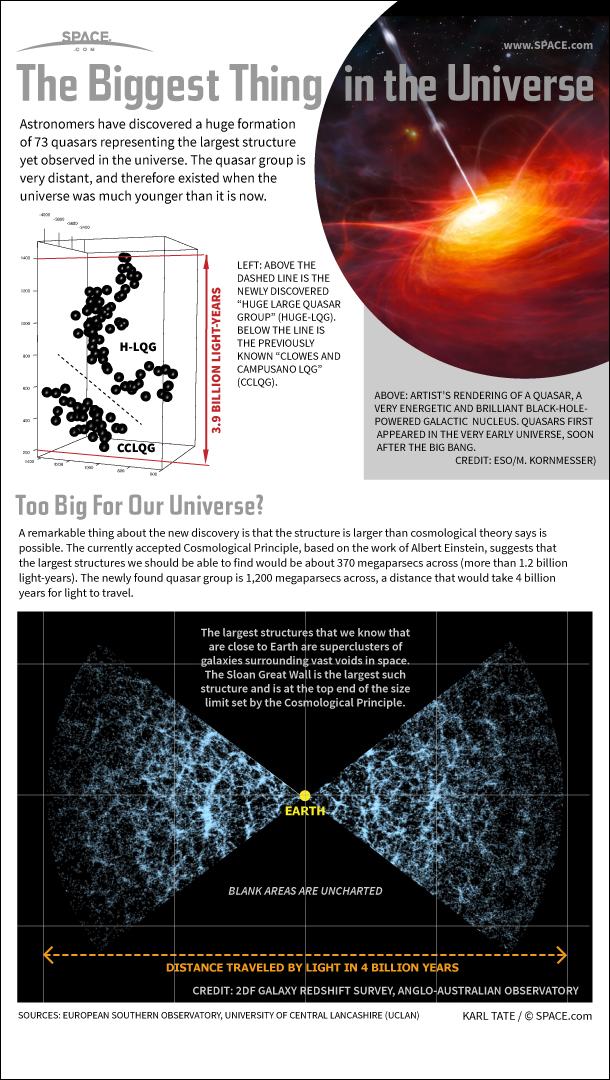Biggest Structure in the Universe Explained (Infographic)

Astronomers have discovered a huge formation of 73 quasars representing the largest structure yet observed in the universe.
The quasar group is very distant, and therefore existed when the universe was much younger than it is now. A quasar is a very energetic black-hole-powered galactic nucleus. Quasars first appeared in the very early universe, soon after the Big Bang. The light from a quasar is so intense that it can be visible from across the universe.
A remarkable thing about the new discovery is that the structure is larger than cosmological theory says is possible. [Blueprint of the Universe (Video Show)]
The currently accepted Cosmological Principle, based on the work of Albert Einstein, suggests that the largest structures we should be able to find would be about 370 megaparsecs across (more than 1.2 billion light-years). The newly found quasar group is 1,200 megaparsecs across, a distance that would take four billion years to cross at the speed of light.
The largest structures that we know that are close to Earth are super clusters of galaxies surrounding vast voids in space. The Sloan Great Wall is the largest such structure and is at the top end of the size limit set by the Cosmological Principle.
- The Universe: Big Bang to Now in 10 Easy Steps
- 7 Surprising Things About the Universe
- Images: Peering Back to the Big Bang & Early Universe
- The History & Structure of the Universe (Infographic Gallery)
Follow Space.com on Twitter @SPACEdotcom. We're also on Facebook & Google+.
Join our Space Forums to keep talking space on the latest missions, night sky and more! And if you have a news tip, correction or comment, let us know at: community@space.com.
Get the Space.com Newsletter
Breaking space news, the latest updates on rocket launches, skywatching events and more!

Karl's association with Space.com goes back to 2000, when he was hired to produce interactive Flash graphics. From 2010 to 2016, Karl worked as an infographics specialist across all editorial properties of Purch (formerly known as TechMediaNetwork). Before joining Space.com, Karl spent 11 years at the New York headquarters of The Associated Press, creating news graphics for use around the world in newspapers and on the web. He has a degree in graphic design from Louisiana State University and now works as a freelance graphic designer in New York City.
